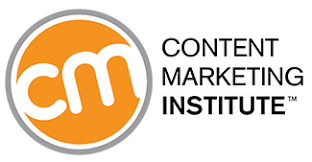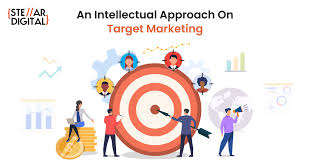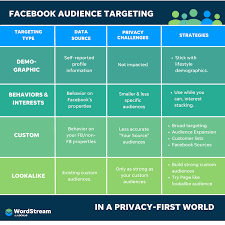Marketers: Driving Business Success in the Digital Age
In today’s fast-paced, technology-driven world, marketers play a crucial role in driving business success. They are the architects behind successful marketing campaigns, brand strategies, and customer engagement initiatives. Marketers possess a unique skill set that combines creativity, strategic thinking, and a deep understanding of consumer behaviour.
One of the key responsibilities of marketers is to create compelling and effective marketing strategies that resonate with their target audience. They conduct thorough market research to identify consumer needs and preferences, enabling them to develop tailored messages that capture attention and drive action. Through their expertise in data analysis and market trends, marketers are able to stay ahead of the competition and position their brands for success.
In the digital age, marketers have embraced technology as a powerful tool for reaching consumers on various platforms. They leverage social media channels, search engine optimization (SEO), email marketing, content creation, and other digital tactics to engage with customers in meaningful ways. By harnessing the power of data analytics and customer insights, they can optimize campaigns in real-time, ensuring maximum impact and return on investment.
Moreover, marketers are at the forefront of building brand identity and reputation. They craft brand stories that resonate with consumers’ emotions and values. Through consistent messaging across different touchpoints, they foster brand loyalty and trust. Marketers understand that a strong brand is not just about products or services; it’s about creating an emotional connection with customers that goes beyond transactional relationships.
In addition to their creative prowess, marketers also excel at measuring results and analyzing metrics. They monitor campaign performance using key performance indicators (KPIs) such as conversion rates, click-through rates (CTR), customer acquisition costs (CAC), and return on investment (ROI). This data-driven approach enables them to make informed decisions about future strategies while continuously optimizing current efforts.
Furthermore, successful marketers understand the importance of staying up-to-date with industry trends and evolving consumer behaviours. They are constantly learning, attending industry conferences, and networking with peers to gain insights and inspiration. By staying ahead of the curve, they can adapt quickly to changing market dynamics and seize new opportunities.
In conclusion, marketers are essential drivers of business success in the digital age. Their ability to understand consumer behaviour, create impactful marketing campaigns, build strong brands, and measure results sets them apart as key contributors to a company’s growth and profitability. As technology continues to advance and consumer expectations evolve, marketers will continue to play a pivotal role in shaping the future of business.
8 Commonly Asked Questions About Marketers in the UK
- What qualifications do I need to be a marketer?
- How can I become a successful marketer?
- What skills are needed for marketing?
- What is the best way to advertise my business?
- What is digital marketing and how does it work?
- How can I measure the success of my marketing campaigns?
- How do I develop an effective marketing strategy?
- What trends should marketers be aware of in 2021?
What qualifications do I need to be a marketer?
To become a marketer, there are several qualifications and skills that can help you excel in the field. While formal education is not always a requirement, having the right knowledge and expertise can significantly enhance your career prospects. Here are some qualifications that can be beneficial for aspiring marketers:
- Degree in Marketing or a related field: Many employers prefer candidates with a bachelor’s degree in marketing, business administration, communications, or a related discipline. These programs provide a solid foundation in marketing principles, consumer behavior, market research, advertising, and digital marketing.
- Professional certifications: Obtaining industry-recognized certifications can demonstrate your expertise and commitment to continuous learning. Certifications such as Google Ads Certification, HubSpot Inbound Marketing Certification, Facebook Blueprint Certification, and Hootsuite Social Media Marketing Certification are highly regarded in the marketing industry.
- Specialized courses: Consider enrolling in specialized courses to gain specific skills relevant to your desired marketing career path. This could include courses on digital marketing strategies, content creation and management, social media marketing, search engine optimization (SEO), data analytics, or graphic design.
- Strong analytical skills: Marketers need to analyze data and make data-driven decisions regularly. Developing strong analytical skills will enable you to interpret market research data, track campaign performance metrics, and identify areas for improvement.
- Creativity and communication skills: Effective marketers possess strong creative thinking abilities to develop compelling campaigns that resonate with their target audience. Additionally, excellent written and verbal communication skills are essential for conveying messages clearly across various channels.
- Digital literacy: In today’s digital landscape, having a solid understanding of digital tools and platforms is crucial for marketers. Familiarize yourself with popular social media platforms like Facebook, Instagram, Twitter, LinkedIn, as well as email marketing software and analytics tools.
- Experience through internships or entry-level positions: Practical experience is highly valued by employers when hiring marketers. Consider internships or entry-level positions in marketing departments to gain hands-on experience and learn from industry professionals.
- Networking and professional development: Building a strong professional network can open doors to opportunities and provide valuable insights. Attend industry events, join marketing associations, and engage with like-minded professionals in online communities to expand your network.
Remember, while qualifications are important, practical experience, a passion for marketing, and a willingness to adapt to the ever-changing landscape are equally crucial. Continuously staying updated on industry trends and evolving consumer behaviors will help you thrive as a marketer.
How can I become a successful marketer?
Becoming a successful marketer requires a combination of skills, knowledge, and practical experience. Here are some steps you can take to embark on a successful marketing career:
- Develop a strong foundation: Start by building a solid understanding of marketing principles and concepts. Take courses or pursue a degree in marketing, business, or a related field. This will provide you with the fundamental knowledge needed to excel in the industry.
- Stay curious and learn continuously: Marketing is an ever-evolving field, so it’s crucial to stay updated with the latest trends, technologies, and consumer behaviours. Read industry publications, attend webinars or conferences, and engage in online communities to keep learning and expanding your knowledge base.
- Hone your analytical skills: Marketers need to be comfortable working with data and analytics. Develop your ability to interpret data, analyze metrics, and draw insights from them. Familiarize yourself with tools like Google Analytics or social media analytics platforms to track campaign performance.
- Cultivate creativity: Marketing is as much an art as it is a science. Nurture your creative thinking skills by exploring different forms of media, staying inspired by design trends, and seeking out opportunities for brainstorming and ideation.
- Build strong communication skills: Effective communication is essential for marketers as they collaborate with various stakeholders such as clients, colleagues, and customers. Work on developing both written and verbal communication skills to convey messages clearly and persuasively.
- Gain practical experience: Seek internships or entry-level positions in marketing departments or agencies to gain hands-on experience. This will allow you to apply theoretical knowledge in real-world scenarios while building your professional network.
- Specialize in specific areas: Marketing encompasses various specializations such as digital marketing, content marketing, social media marketing, brand management, market research, etc. Identify areas that align with your interests and strengths and consider specializing in those areas to become an expert in your field.
- Embrace digital tools and technology: In today’s digital age, marketers need to be proficient in using various marketing tools and platforms. Familiarize yourself with social media platforms, email marketing software, content management systems, SEO tools, and other relevant technologies to enhance your skill set.
- Develop a growth mindset: Marketing is a dynamic field that requires adaptability and a willingness to embrace change. Cultivate a growth mindset by being open to new ideas, seeking feedback, and continuously improving your skills.
- Network and collaborate: Building strong professional relationships is crucial for career growth in marketing. Attend industry events, join professional associations or online communities, and connect with like-minded professionals. Collaboration and networking can lead to valuable opportunities and insights.
Remember that becoming a successful marketer takes time and dedication. Continuously seek opportunities for growth, stay passionate about the industry, and be proactive in expanding your knowledge and skill set.
What skills are needed for marketing?
Marketing is a multifaceted field that requires a diverse set of skills to be successful. Here are some key skills that are essential for marketers:
- Communication Skills: Excellent communication skills, both written and verbal, are crucial for marketers. They must be able to effectively convey messages and ideas to their target audience, whether it’s through advertising campaigns, social media content, or presentations.
- Creativity: Marketers need to think outside the box and come up with innovative ideas that can capture attention and differentiate their brand from competitors. Creativity helps in developing engaging content, designing eye-catching visuals, and crafting compelling marketing campaigns.
- Analytical Skills: Data analysis plays a significant role in modern marketing. Marketers need to be comfortable working with data and using analytics tools to measure campaign performance, track customer behaviour, and make data-driven decisions.
- Strategic Thinking: Marketers must have the ability to think strategically and develop long-term plans that align with business objectives. They need to analyze market trends, identify opportunities, and develop effective strategies that drive results.
- Digital Marketing Knowledge: In today’s digital landscape, marketers need a solid understanding of various digital marketing channels such as social media, search engine optimization (SEO), email marketing, content marketing, and paid advertising. Familiarity with digital tools and platforms is essential for reaching target audiences effectively.
- Market Research: Marketers should have strong research skills to gather insights about consumer preferences, industry trends, competitor analysis, and market dynamics. This information helps them make informed decisions about targeting strategies and product positioning.
- Adaptability: The marketing landscape is constantly evolving with new technologies and consumer behaviours. Marketers need to be adaptable and open to learning new skills or adjusting their strategies accordingly.
- Project Management: Effective project management skills are crucial for marketers as they often juggle multiple campaigns or initiatives simultaneously. Being able to prioritize tasks, meet deadlines, and manage resources efficiently is essential for success.
- Collaboration: Marketing often involves working with cross-functional teams, such as designers, copywriters, and sales teams. Marketers should be able to collaborate effectively, communicate their ideas clearly, and work towards a common goal.
- Customer Focus: Marketers need to have a deep understanding of their target audience and be able to empathize with their needs and preferences. Customer-centric thinking helps in developing marketing strategies that resonate with the intended audience.
These skills, combined with industry knowledge and experience, can empower marketers to navigate the ever-changing marketing landscape successfully and drive business growth.
What is the best way to advertise my business?
The best way to advertise your business depends on various factors, including your target audience, budget, industry, and marketing objectives. Here are some effective advertising strategies that can help you promote your business:
- Define Your Target Audience: Before advertising, it’s crucial to identify your target audience. Understand their demographics, interests, and preferences to tailor your messaging effectively.
- Digital Advertising: In today’s digital age, online advertising offers vast opportunities. Consider paid search ads (PPC), social media advertising (Facebook Ads, Instagram Ads), display/banner ads, and video ads on platforms like Google Ads or social media platforms.
- Content Marketing: Create valuable and engaging content through blog posts, videos, podcasts, or infographics to attract and educate your target audience. Share this content on your website, social media channels, and relevant industry platforms.
- Search Engine Optimization (SEO): Optimize your website for search engines to improve organic visibility. Focus on keyword research, quality content creation, link building strategies, and technical SEO aspects to rank higher in search engine results pages.
- Social Media Marketing: Leverage the power of social media platforms such as Facebook, Instagram, Twitter, LinkedIn etc., to engage with your audience directly. Share engaging content regularly and interact with followers through comments and messages.
- Influencer Marketing: Collaborate with influencers or industry experts who have a significant following in your niche. Their endorsement can help increase brand visibility and credibility among their followers.
- Email Marketing: Build an email list of interested customers or prospects and send targeted email campaigns with valuable content or exclusive offers to nurture relationships and drive conversions.
- Local Advertising: If you have a brick-and-mortar store or serve a specific local area, consider traditional offline methods like newspaper ads, radio spots or billboards targeting the local community.
- Customer Referrals & Reviews: Encourage satisfied customers to refer others by offering incentives or discounts. Positive reviews and testimonials can also be powerful advertising tools, so encourage customers to share their experiences online.
- Analyze and Optimize: Continuously monitor and analyze your advertising efforts to identify what works best for your business. Use analytics tools to track key metrics, such as conversion rates, click-through rates, and return on investment (ROI). Adjust your strategies accordingly to maximize results.
Remember, there is no one-size-fits-all approach to advertising. It’s essential to experiment with different channels, test strategies, and adapt based on the feedback and insights you gather along the way.
What is digital marketing and how does it work?
Digital marketing refers to the use of digital channels, such as websites, social media platforms, search engines, email, and mobile applications, to promote products or services and connect with target audiences. It encompasses a wide range of tactics and strategies aimed at reaching and engaging potential customers in the online space.
Digital marketing works by utilizing various channels and techniques to create brand awareness, drive website traffic, generate leads, and ultimately convert those leads into customers. Here are some key components of how digital marketing works:
- Website Optimization: A well-designed and user-friendly website is crucial for digital marketing success. Optimizing a website involves ensuring it is visually appealing, easy to navigate, mobile-responsive, and optimized for search engines (SEO) to improve its visibility in search results.
- Search Engine Marketing (SEM): SEM involves paid advertising on search engines like Google or Bing. Marketers bid on specific keywords relevant to their business to display ads when users search for those keywords. This helps drive targeted traffic to their websites.
- Search Engine Optimization (SEO): SEO focuses on improving a website’s visibility in organic (non-paid) search engine results. By optimizing website content, meta tags, backlinks, and other factors that influence search engine rankings, marketers aim to increase organic traffic.
- Content Marketing: Content creation is a vital aspect of digital marketing. Through blog posts, articles, videos, infographics, podcasts, and more, marketers provide valuable information that educates and engages their target audience while establishing their brand as an authority in the industry.
- Social Media Marketing: Social media platforms like Facebook, Instagram, Twitter, LinkedIn etc., offer opportunities for businesses to connect with their target audience directly. Marketers create engaging content tailored for each platform while utilizing features like paid advertising campaigns or influencer partnerships to expand reach.
- Email Marketing: By building an email list through subscriptions or lead generation campaigns on their websites or social media, marketers can send targeted emails to nurture leads and maintain relationships with existing customers. Email marketing helps drive conversions and increase customer retention.
- Online Advertising: Digital marketing includes various forms of online advertising, such as display ads, banner ads, native ads, and video ads. These ads are strategically placed on websites, search engine result pages, or social media platforms to reach a wider audience and generate leads.
- Analytics and Tracking: Digital marketing relies heavily on data analysis to measure the effectiveness of campaigns. Marketers use tools like Google Analytics to track website traffic, user behavior, conversion rates, and other key metrics. This data helps them make data-driven decisions and optimize their strategies for better results.
Digital marketing is a dynamic field that continuously evolves as technology advances and consumer behavior changes. By leveraging the power of digital channels and employing effective strategies, businesses can effectively reach their target audience, build brand awareness, drive engagement, and ultimately achieve their marketing goals in the digital landscape.
How can I measure the success of my marketing campaigns?
Measuring the success of marketing campaigns is crucial to understand their impact and make data-driven decisions for future strategies. Here are some key metrics and methods you can use to measure the effectiveness of your marketing campaigns:
- Conversion Rate: This metric measures the percentage of website visitors who take a desired action, such as making a purchase, filling out a form, or subscribing to a newsletter. By tracking conversion rates, you can evaluate how effectively your campaign is driving desired actions.
- Return on Investment (ROI): ROI helps determine the profitability of your marketing efforts by comparing the cost of your campaign to the revenue generated. Calculating ROI allows you to assess whether your marketing investment is generating a positive return.
- Key Performance Indicators (KPIs): Identify specific KPIs that align with your campaign objectives. These could include metrics like click-through rates (CTR), engagement rates, customer acquisition costs (CAC), or social media followers. Tracking these KPIs provides insights into how well your campaign is performing against specific goals.
- Website Analytics: Utilize web analytics tools like Google Analytics to track website traffic, user behavior, and conversions. Analyzing data such as page views, bounce rates, time on site, and traffic sources helps you understand how effective your campaign is in driving traffic and engaging users.
- Customer Surveys and Feedback: Collecting feedback from customers through surveys or feedback forms can provide valuable insights into their perception of your campaign’s messaging, effectiveness, and overall impact on their purchasing decisions.
- Social Media Metrics: If you’re running social media campaigns, monitor metrics like reach, engagement (likes, comments, shares), follower growth rate, and click-through rates on social media posts. These metrics help gauge audience engagement and the effectiveness of your social media efforts.
- A/B Testing: Conduct A/B tests by creating two versions of an advertisement or landing page with slight variations in elements like headlines, images, or calls-to-action. By comparing the performance of these variations, you can identify which elements drive better results and optimize your campaign accordingly.
Remember, the specific metrics you choose to measure will depend on your campaign goals and objectives. Regularly track and analyze these metrics throughout the duration of your campaign to assess its success and make data-driven adjustments for future campaigns.
How do I develop an effective marketing strategy?
Developing an effective marketing strategy requires careful planning, research, and a deep understanding of your target audience. Here are some steps to help you develop a successful marketing strategy:
- Set Clear Objectives: Start by defining your marketing goals and objectives. What do you want to achieve? Whether it’s increasing brand awareness, driving website traffic, or generating leads, clearly define what success looks like for your business.
- Know Your Target Audience: Conduct thorough market research to understand your target audience’s demographics, preferences, needs, and behaviours. This will help you tailor your messaging and tactics to effectively reach and engage them.
- Analyze the Competition: Study your competitors’ marketing strategies to identify their strengths and weaknesses. This will help you differentiate yourself and find unique opportunities in the market.
- Define Your Unique Selling Proposition (USP): Determine what sets your product or service apart from the competition. Identify the key benefits or features that make you stand out in the eyes of consumers.
- Choose Your Marketing Channels: Select the most appropriate marketing channels to reach your target audience effectively. Consider both traditional channels (e.g., print ads, TV commercials) and digital channels (e.g., social media, email marketing) based on where your audience is most active.
- Develop Compelling Messaging: Craft clear and compelling messaging that communicates your USP and resonates with your target audience’s needs and desires. Focus on how your product or service solves their problems or fulfills their aspirations.
- Create a Content Strategy: Plan a content strategy that aligns with your objectives and resonates with your target audience. Develop valuable content that educates, entertains, or inspires them while subtly promoting your brand.
- Implement Effective Tactics: Execute tactics that align with your chosen channels and resonate with your target audience. This may include social media campaigns, search engine optimization (SEO), paid advertising, influencer partnerships, events, or public relations activities.
- Measure and Analyze Results: Continuously monitor and measure the performance of your marketing efforts. Use key performance indicators (KPIs) such as website traffic, conversion rates, engagement metrics, and sales to evaluate the effectiveness of your strategy. Adjust your tactics based on the insights gained from data analysis.
- Adapt and Evolve: The marketing landscape is constantly evolving. Stay updated with industry trends, consumer behaviours, and emerging technologies. Adapt your strategy accordingly to stay ahead of the competition and meet the changing needs of your target audience.
Remember that developing an effective marketing strategy is an ongoing process. Regularly review and refine your approach based on feedback, market changes, and new opportunities to ensure long-term success.
What trends should marketers be aware of in 2021?
As marketers navigate the ever-changing landscape of the digital world, it is crucial to stay informed about emerging trends that can shape their strategies and drive success. Here are some key trends that marketers should be aware of in 2021:
- Increased Importance of Personalization: Consumers now expect personalized experiences across all touchpoints. Marketers need to leverage data-driven insights to deliver tailored content, recommendations, and offers that resonate with individual customers.
- Rise of Influencer Marketing: Influencer marketing continues to grow in popularity as consumers seek authentic connections with brands. Marketers should identify influencers who align with their target audience and collaborate on creative campaigns to leverage their reach and credibility.
- Emphasis on User-Generated Content (UGC): User-generated content has become a powerful tool for building brand trust and authenticity. Encouraging customers to create and share content related to their experiences with a brand can enhance engagement and foster a sense of community.
- Voice Search Optimization: With the increasing adoption of voice assistants like Siri, Alexa, and Google Assistant, optimizing content for voice search is essential. Marketers should focus on long-tail keywords, conversational language, and structured data to improve visibility in voice search results.
- Privacy and Data Protection: As privacy concerns grow, marketers must prioritize data protection and transparency in their practices. Compliance with regulations such as GDPR (General Data Protection Regulation) is crucial, along with providing clear opt-in/opt-out options for data collection.
- Video Dominance: Video consumption continues to rise across various platforms. Marketers should invest in video content creation, including live streaming, tutorials, product demos, and storytelling formats that engage audiences effectively.
- Social Commerce Expansion: Social media platforms are increasingly integrating e-commerce features within their interfaces, allowing users to make purchases without leaving the platform. Marketers should explore social commerce opportunities by creating shoppable posts and leveraging social media ads for direct conversions.
- Sustainability and Purpose-Driven Marketing: Consumers are increasingly conscious of sustainability and social responsibility. Brands that authentically align with environmental and social causes can resonate with consumers and build long-term loyalty.
- Augmented Reality (AR) and Virtual Reality (VR): AR and VR technologies offer immersive experiences that can enhance customer engagement. Marketers should explore ways to incorporate these technologies into their campaigns, such as virtual try-on experiences or interactive product demonstrations.
- Continued Growth of Mobile Marketing: Mobile devices remain a primary channel for accessing information and making purchases. Marketers should prioritize mobile optimization, responsive design, mobile-friendly content, and location-based targeting to reach their audience effectively.
By keeping a pulse on these trends, marketers can adapt their strategies accordingly, stay ahead of the competition, and deliver exceptional experiences that resonate with their target audience in 2021 and beyond.






